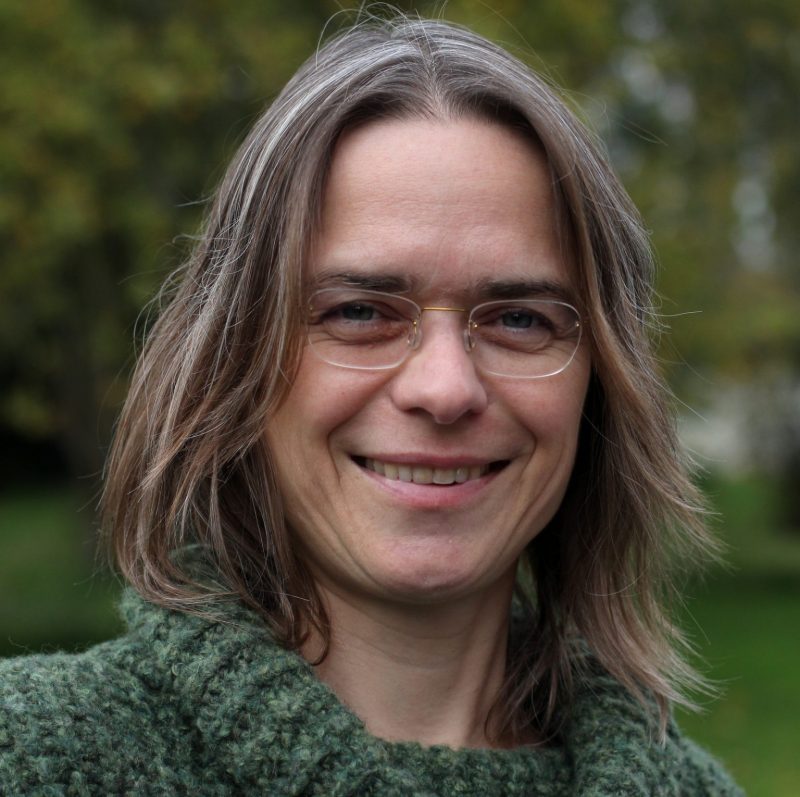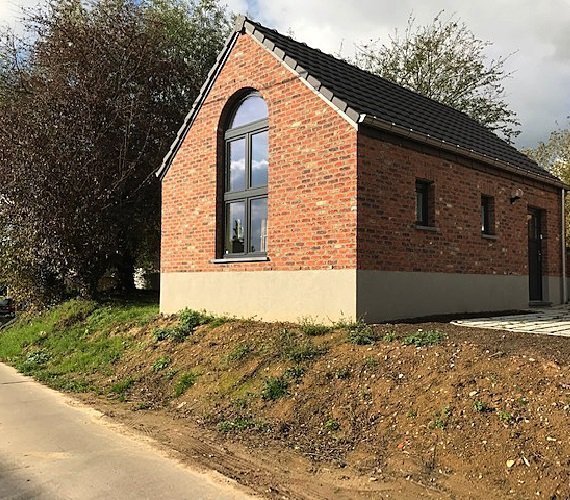
About Schola Vocalis
At Schola Vocalis you learn to know and develop your voice. Regarding starting point Schola Vocalis is almost completely based on the Lichtenberg method, a voice method with a very specific approach . The use of this method is, of course, markedly influenced by Livia’s 20 years of broad experience as a speech therapist – voice didactician, voice coach and voice therapist . That experience spans the treatment of voice problems and the stimulation of the development of already healthy voices.
At Schola Vocalis, group courses are given and the school is also a second location for the individual voice coaching and voice therapy of voicecoaching.

Singing Voice Courses
Schola Vocalis is, more particularly, a school for singers (amateur, semi-professional, professional) who want to sing in a healthy, natural manner. In the group courses the emphasis is therefore placed on the singing voice, although the development of a fine quality, healthy speaking voice is also an essential part of the process.
The purpose of the singing voice courses is to gain vocal knowledge and skills when singing sounds, and subsequently to apply these new, healthy sound qualities to already known repertoire (arias, classical songs, pop songs, …).
Lichtenberg Method
In Schola Vocalis you learn with the Lichtenberg Method to explore and better understand the voice instrument so as to be able to use it in a healthy manner when singing and speaking. Exploration of the voice has a practical and a theoretical aspect:
Practical exploration happens through sensory perception during the singing of a sound. The capacity to perceive the sound via the senses (listening, feeling, …) is incrementally intensified and refined. This is necessary because the voice organ is by nature a subtle organ and therefore requires a refined control that can only happen via an – equally refined – sensory perception. That way you prevent or solve voice problems; you can also achieve greater comfort during singing, even if previously you were never aware of having had any voice problems (prevention of voice problems).
Theoretical exploration often follows after a practical experience, but can also come before or even during singing, without forcing the acquired experience into a rational straitjacket. The theoretical interpretation may consist of: elements of acoustics, the anatomy (construction) and physiology (functioning) of the voice instrument. Theory is necessary to clear up any “blind spots” and thus helps to realize a more aware, more efficient contact with your own voice instrument. The voice instrument is, after all, invisible and therefore very different from other musical instruments. It is therefore necessary to learn to read the “inner map” of the instrument, and on interesting sound components, in order to reach a high degree of efficiency.
The approach within Schola Vocalis is thus characterized by the interaction of practice and theory.
The cornerstone of both practice and theory is the mechanism of self-regulation. We know the self-regulation of organs such as the stomach, the heart, the intestines, … which, so to speak, have an intelligence of their own and so regulate themselves without our voluntary intervention. With the Lichtenberg method we try to give self-regulation in the larynx the best possible chance, because even the larynx is largely endowed with that sort of autonomous intelligence. However, it is not always a simple matter of course to allow the larynx to regulate itself, since it is also partially under our voluntary control and, therefore, can be manipulated (e.g.: deliberately straining a high or a low larynx position). Such manipulations are avoided as far as possible in Schola Vocalis; quite the contrary, we try to allow the larynx to self-regulate as far as possible via stimulations. This autonomous self-regulation is, in fact, much more refined/more subtle and more respectful of the construction and functioning of the larynx. In other words: healthier than when we try to control the larynx by our own conscious effort. The rule is: the more fragile the voice, the more it is important to learn to allow self-regulation to create as little pressure and stress as possible.
It therefore typifies Schola Vocalis that no seperate techniques are offered that are added on to the existing use of voice. Quite the contrary, your own voice potential is steadily mined and incrementally eased into full bloom, always setting out from the generally unknown principle of self-regulation.
Services
Voice Therapy
Do you have voice problems and want to develop a healthy voice?
You want to understand what more sound with less effort implies.
Livia’s voice test will identify your problems. If necessary, she will advise you consult an ear nose and throat medic who can provide a clinical diagnosis and prescribe therapy.
Online sessions are possible too!
Speaking Voice + Singing Voice
Emphasis is given to either speaking, singing or both, depending on your goal. Applications such as presentations, songs, arias are explored. We carefully work towards your personal goal with the health of the voice as the central objective. We continuously assess and reassess individual potential. This often neglected “gold mine” is explored step by step through stimulating awareness raising exercise leading to mastery. To this end, Livia’s approach avoids artificial vocal manipulation, by triggering natural self-regulation.
Overview Courses
Basic starting point: the Lichtenberg Method
Information for all courses:
Target Group: Singers (amateur, semi-professional professional) who have a special interest in developing their singing voice in a healthy and natural way. Some experience with the Lichtenberg method is welcome but not necessary.
Purpose: develop “the layering” of the voice. For this purpose, a wide range of fundamental voice themes is addressed, such as “a sound compass ”, “the ear”, “the voice box”, “the nose”, “breath”, …. In addition, participants’ individual exercises will be explicitly reviewed to help optimize the process.
Basic Entry Requirement: You can pitch notes from the piano. Reading music is not necessary, but is an advantage.
Approach: maximum 5 people. Individual lesson and learning through listening and observing the group.
Location: Schola Vocalis in Roux-Miroir, not far across the border with Vlaams-Brabant.
Register: Contact me via the form
Practical aspect: think of carpooling with other participants! Quiet route.
Tip for those who like to make a trip out of it: gîte or B&B available. If interested: ask for addresses! (beautiful walking and cycling routes…)
Courses 2024:
Prices
(from January 1, 2024)
conventionalized
Logopedic Voice Therapy = Speech Therapy
(Prescribed by the ear-nose-throat)
Speech therapy voice search with written report:
Initial workup:
- 42,75 euros per 30 minutes.
- Reimbursement by health insurance: 35,25 euros.
! For holders of preferred scheme:
- 42,75 euros per 30 minutes.
- Reimbursement by health insurance: 39,75 euros.
Evolution bilan:
- 51,50 euros.
- Reimbursement by health insurance: 40,50 euros.
! For holders of preferred scheme:
- 51,50 euros.
- Reimbursement by health insurance: 47 euros.
Logopedic voice therapy:
Provision of 30 min.:
- 36,14 euros.
- Reimbursement by health insurance: 30,64 euros.
! For holders of preferred scheme:
- 36,14 euro.
- Reimbursement by health insurance: 34,14 euros.
Voice Coaching
Individual sessies
- 34 euros per 30 minutes.
- 68 euros per 60 minutes.
Location + Accessibility
Rue de Patruange 22B
1315 Roux-Miroir (Incourt)
Belgium
Centrally located between Leuven, Tienen, Jodoigne, Namur, Gemblours, Louvain-la-Neuve, Wavre and Brussels.
Also easily accessible by (electric) bicycle or on foot, because located at fifty meters from the cycle route, La Transincourtoise, which is also accessible for pedestrians.
